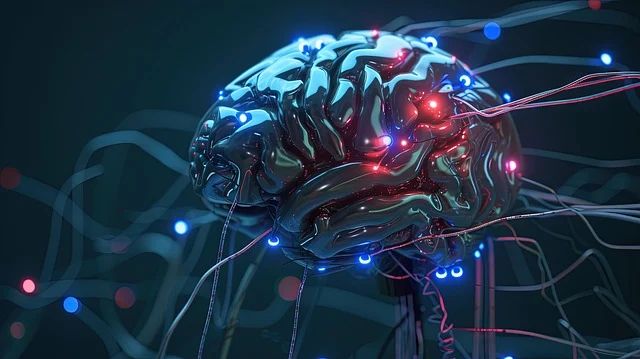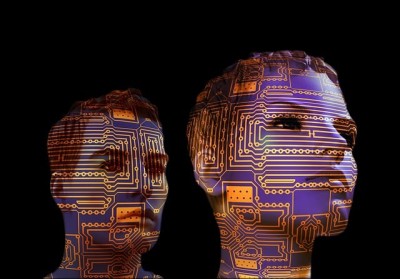The Rise of Artificial Intelligence: How AI is Changing Everyday Life

Artificial Intelligence (AI) is no longer a futuristic concept confined to science fiction movies it's here, and it’s transforming the way we live, work, and interact. From personalized recommendations on Netflix to self-driving cars and virtual assistants like Siri and Alexa, AI has woven itself into the fabric of modern life. But how exactly is AI reshaping everyday experiences? Let’s dive into the rise of AI and its growing impact on our daily routines.
What is Artificial Intelligence?
AI refers to machines or software programs that can mimic human intelligence processes such as learning, reasoning, problem-solving, perception, and language understanding. These systems are designed to analyze data, recognize patterns, and make decisions with minimal human intervention.
There are two main types of AI:
- Narrow AI: Focused on specific tasks (e.g., facial recognition, translation).
- General AI: Capable of performing any intellectual task a human can do (still under development).
How AI is Influencing Our Daily Lives
1. Smart Assistants and Home Automation
Devices like Amazon Alexa, Google Assistant, and Apple Siri use AI to perform tasks such as setting alarms, controlling smart home devices, playing music, and answering questions. AI enables these systems to understand natural language and improve over time through machine learning.
Fact: As of 2024, over 77% of U.S. households use smart devices powered by AI.
2. Personalized Content and Recommendations
AI powers the recommendation engines of platforms like YouTube, Spotify, Netflix, and Amazon. It analyzes your behavior what you watch, buy, or listen to and suggests content you’re likely to enjoy.
Example: Netflix claims its AI-driven recommendation engine saves it $1 billion annually in customer retention.
3. Healthcare Advancements
AI is revolutionizing healthcare through early diagnosis, treatment recommendations, and robotic surgery. AI algorithms are being used to detect diseases like cancer from X-rays, MRIs, and pathology slides with impressive accuracy.
Fact: IBM’s Watson for Health can analyze millions of pages of medical data in seconds, assisting doctors with treatment plans.
4. Transportation and Autonomous Vehicles
From predictive traffic navigation (Google Maps) to autonomous vehicles, AI is shaping how we move. Companies like Tesla, Waymo, and Uber are investing heavily in AI to create safer, smarter transportation systems.
Forecast: The autonomous vehicle market is expected to surpass $800 billion by 2030, largely driven by AI technologies.
5. Customer Service and Chatbots
Many businesses now use AI-powered chatbots to handle customer inquiries 24/7. These bots can process natural language, learn from interactions, and provide real-time support without human agents.
Fact: By 2025, 95% of customer interactions are expected to be powered by AI in some form, according to Gartner.
6. Finance and Banking
AI is widely used in fraud detection, automated trading, risk management, and personalized banking experiences. Chatbots in banking apps, for instance, can help customers check balances or transfer money quickly.
Highlight: JPMorgan Chase’s AI system, COiN, reviews legal documents in seconds, a task that once took hundreds of hours.
7. Education and Learning
AI tools support personalized learning experiences through apps that adapt to individual learning styles. AI is also used in grading systems and plagiarism detection.
Example: Platforms like Duolingo and Khan Academy use AI to tailor lessons and provide instant feedback.
Ethical Concerns and Challenges
Despite its benefits, the rise of AI brings concerns:
- Privacy Issues: AI collects and processes large amounts of personal data.
- Job Displacement: Automation could replace certain jobs, especially in manufacturing and administration.
- Bias and Fairness: AI systems can reflect or amplify biases in their training data.
- Security: Misuse of AI (deepfakes, surveillance) poses risks to democracy and trust.
The Future of AI in Everyday Life
As AI continues to evolve, we can expect even more sophisticated integration into daily life—from wearable health monitors that predict illness before symptoms appear, to AI tutors offering personalized education, and even AI co-workers that collaborate with humans on creative projects.
The key to a positive AI-driven future lies in ethical development, transparent systems, and inclusive access. If harnessed responsibly, AI holds the potential to make life more convenient, efficient, and even safer.
Conclusion
AI is not just a trend, it’s a transformative force shaping our present and future. By understanding how AI impacts everyday life, we can better embrace its possibilities while addressing its challenges. Whether it’s helping us find a new favorite song, diagnosing a disease earlier, or powering our self-driving commute, AI is redefining what’s possible in the 21st century.
-1745570755.jpg)
Smart Living: Embracing Technology for a Better Tomorrow
-1745570753.jpg)
Connected World: The Role of Tech in Modern Living
-1745570758.jpg)
The Rise of Automation: What It Means for Work and Life

The Ethical Dilemmas of AI and Machine Learning

Using Social Media the Right Way: Tips for Kids and Teens




-1745569762.jpg)
-1745569762.jpg)
-1745569769.jpg)
-1745569771.jpg)